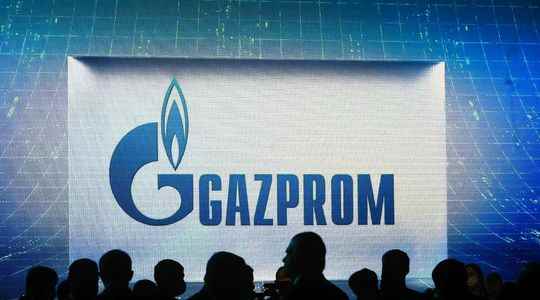First Ukraine, then now Poland. While the conflict is bogged down in the Donbass, Vladimir Putin is continuing his strategy of destabilizing Europe by activating the energy lever. For the past two days, gas deliveries to the 27 transiting through these two border countries have experienced a significant decline. The first alert came from Ukraine on Wednesday May 11, when the German government agency responsible for energy noted a drop in the volumes of Russian gas transported by the “Brotherhood” gas pipeline passing through Ukrainian territory. A 25% decrease in flows, which is a first since the start of the conflict, noted the agency.
With regard to Poland, it is even a complete stoppage of the gas pipeline (Yamal-Europe) which was announced by Gazprom. In a press release published Thursday, May 12, the latter indicated that the adoption of the Russian counter-sanctions prohibited him “from using a gas pipeline belonging to EuRoPol Gaz” (the company which operates the Polish part of the gas pipeline). Since the end of April, Putin had in any case decided to no longer supply Poland and Bulgaria, these two countries having refused to pay the bill for this gas in roubles. In fact, little gas was circulating in the pipe according to the experts.
Fortunately, one would be tempted to say. Because far from stopping at Poland, the Yamal-Europe pipe continues its route to Germany, to serve the country as well as the rest of the continent. For Nicolas Goldberg, energy expert at Terra Nova and Colombus Consulting, this maneuver by the Russian giant is “nothing surprising”. “Putin continues his game of dividing Europeans and pressure,” he explains. Phuc Vinh Nguyen, from the Climate and Energy Center of the Jacques-Delors Institute, adds: “Little by little, the bird is making its nest. Putin is stepping up measures to keep prices at high levels. This is not trivial , while Europe is in the midst of negotiations, particularly on the oil embargo”. As far as prices are concerned, the coup is probably successful. Between Wednesday and Thursday, the price of Dutch TTF, gas listed in the Netherlands referring to the European level, jumped by almost 11% from 95 to 106 euros per megawatt hour, even if it has declined a little since.
The gas pincer
In addition to the price issue, can the Kremlin boss jeopardize the energy security of European countries seeking to turn away from Russian gas, but are still largely dependent on it? Unlikely in the current state of affairs. As winter recedes, gas consumption, which is very seasonal, is gradually decreasing in Europe. Storage is 38% full according to Gas Infrastructure Europe, compared to 27% at the beginning of last month. Moreover, a calculation made by the Scandinavian bank Svenska Enskilda Banken, or SEB, recalls that 30% of Russian natural gas to Europe passes through Ukraine. Of this total volume, only a portion (between 25% and 30%) is no longer transported. Nicolas Goldberg also recalls that the volumes lost over the past two days are partly offset by the use of the Nord Stream 1 channel passing under the North Sea. In total, according to SEB, the loss linked to Ukraine represents 2% of total European consumption.
Putin would therefore sacrifice an economic windfall for a retaliatory measure with uncertain benefit? Some experts believe that the reduction in flow in Ukraine observed two days ago could also be the result of disturbances deliberately decided by the local authorities on their soil. “It is possible that Ukraine will try to pressure Hungary into agreeing to an EU oil embargo against Russia,” a Commerzbank analyst said in a note. “It’s hard to say. It’s hard to see clearly in the game of each other”, recognizes for his part Nicolas Golberg.
What is certain is that without being dramatic, these maneuvers require extreme vigilance. The inventory replenishment campaign, which began several weeks ago, should enable Europe to get through next winter, which promises to be extremely tense, with sufficient woolen stockings. But the measures taken by Russia are hampering this filling and therefore keeping Europe under tension. “We can clearly see that the filling of stocks is progressing well. Liquefied natural gas is available, in particular because China is in confinement. Putin is trying to keep control, in particular a few days before the implementation of the measure aimed at ensuring that Europeans pay for their gas in roubles, which should come in by the end of May. They don’t want to give up ground,” explains Phuc Vinh Nguyen.
